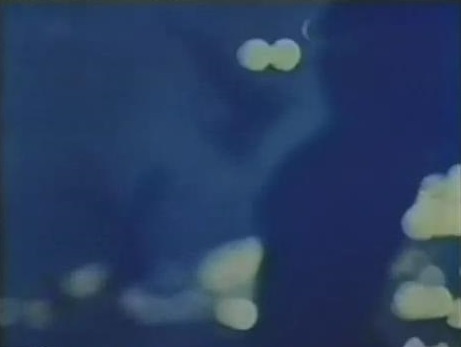The Three Sisters
Chekhov’s
county satire, in the Actors Studio production staged by Lee Strasberg.
Incomparably funny, and by inadvertence booed on the London stage.
Bogart inhabits
the staging like Burge on Olivier’s Uncle Vanya. The settings are
realistic.
The English text
has the authority of Randall Jarrell.
And then the
cast, Geraldine Page (Olga), Kim Stanley (Masha), Sandy Dennis (Irina). Luther
Adler (Dr. Chebutykin), Kevin McCarthy (Vershinin), Shelley Winters (Natasha),
Albert Paulsen (Kulygin), Gerald Hiken (Andrei), James Olson (Baron Tuzenbach),
Robert Loggia (Solyony).
“The fool
suffereth vexation...”
Act I
Irina’s birthday
Act II
The reign of Natasha
Act III
The fire
Act IV
The departure of the troops
The
extraordinarily adroit use of offstage sound as chorus (bells, a dog barking,
etc.) was noted by Howard Taubman in his 1964 New York Times review of
the play.
Mark Twain Tonight!
The four general
parts, as a master tactician would say, are Jim Blaine (Roughing It), The
Adventures of Huckleberry Finn, “The Golden Arm”, and the
riverboat pilot.
There’s
a-plenty betwixt and between, Twain scaling the heights and the depths of human
existence, but the scholar and adept can deduce the rest from the layout.
An old man, the
genius at his writing table, the young dramatic spectator, the poet of the
Mississippi.
Holbrook’s
performance is one of those you don’t forget, it does all these things in
a bare hour and a half.
Bogart lets you
know it’s a television studio with a long shot from the back of the balcony
showing lights and a monitor, his cameras cover the lecture stage for the rest
of it, close-ups, wide shots, everything.
A Time to Be Born
Coronet Blue

About
to rock the boat on the river in New York, the old heave-ho.
“We know
what you’re doing,” says the lady. “You’re not really
in this with us. You’ve been pretending all along. I’m surprised at
you.”
The incipit of a
work that tried many wits and found them wanting help, “I’d rather
be baffled than bored,” cp. Mister Buddwing (dir. Delbert Mann), and note that the
unfortunate victim’s sire is none other than Boston Blackie.
Blue
Coronet, “a bar over on Third Avenue”. Yevtushenko’s
“Colors”, recalling the verses of In a Lonely Place (dir. Nicholas Ray), latterly the creator of the
series cited “Russian agents”. A job at The
Searching i. A
boat-builder’s Latin American go-between, “Chico”. Death of a nice little rich girl.
Notably edited
(Sidney Katz supervising), fine score by Laurence Rosenthal.
Marlowe
The case begins
and ends at The Infinite Pad, Philip Marlowe from his office in the Bradbury
Building is drawn into the continuation.
Two sisters and a
brother from Manhattan, Kansas. One is the queen of the Hollywood sitcoms, the
brother snaps her in the arms of Public Enemy No. 1, formerly a Brooklynite.
Both coasts and
the Middle West, from Raymond Chandler’s The Little Sister.
The rapidity is
Marlowe’s, it fooled the critics into divagations on style and plot.
A lightning-quick
“trained detective” amid the limitations of a nasty blackmail
scheme full of envy, revenge and other ill-assorted motives..
Skin Game
The joke would be
this, one confidence man sells the other as a slave, then liberates him. They
divide the money and move on to the next auction or farm. One day it catches up
to them, and they get a taste of ill treatment, which makes better men of them.
That would be
Preston Sturges’ Sullivan’s Travels, but there’s more.
They chance upon a confidence woman, and when the day of comeuppance comes it
brings a boatload of new arrivals to the trade.
So the
comeuppance is still more surprising and adds another dimension to the tale.
Paul Bogart makes
it look easy, which is what he does in Cancel My Reservation (“This
is Bob ‘Zabriskie Point’ Hope”) and A Memory of Two
Mondays by Arthur Miller.
Cancel My Reservation
A New York
comedy, constructed around the time the city became uninhabitable, which opens
up like a dream into the American Far West, and there finds things
haven’t changed so much since the days of Buck Benny, lending a swift
understanding of Antonioni’s Zabriskie Point scarcely to be
obtained elsewhere.
The drollery of
the script (Chief Dan George as a mountain mystic tells Hope to go and water
his fern), by Arthur Marx out of Louis L’Amour, is of a piece with the
directorial style, which can set up the necessary gags and devices or take off
at a moment’s notice for parts unknown.
Another gag,
which depends as much on camera placement as anything else, has the sheriff
open his locker door to reveal a picture of John Wayne taped inside it, then
next to him his deputy opens his to reveal a picture of “Gabby”
Hayes.
A Memory of Two Mondays
The workplace
camaraderie and its dramas and comedies, goodbye to all that and good riddance.
Brilliantly
directed on a set that represents an auto parts warehouse in the Thirties
(“gruesome”, Miller says of the time) with scrupulous accuracy.